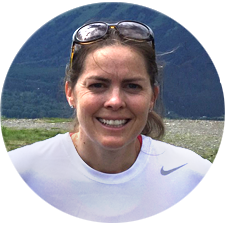
Mount Kilimanjaro, Tanzania2017
BLOGS

Elizabeth (Betsy) O’Donnell
Proving the Power of Physical Fitness
December 01, 2017
Exercise has always played a central role in my life and is a great passion for me. I played field hockey and lacrosse throughout college and pursued the sport of triathlon as my full-time job after college. I continue to be very active riding 40 miles round-trip to work every day for nine months out of the year and just started bike racing again. I love being outdoors and am up for pretty much any adventure.
While exercise is a passion for me, it is also something that I see as important to my wellness. The American College of Sports Medicine recommends 150 minutes of moderate-intensity exercise plus two strength workouts each week. Further, the American Cancer Society recommends that cancer patients strive to meet these recommendations as well. We have good evidence to support the role of exercise in cancer care.
Cancer patients are vulnerable to loss of physical function and changes in quality of life and mood as a result of treatment for their disease. As novel treatments help patients to live longer, attention to improving fitness, function, and quality of life has become paramount. Exercise during and after cancer treatment not only improves physical function and quality of life parameters but has been linked to improved tolerance of systemic therapy, medication adherence, disease-free and overall survival.
In addition to my role as a multiple myeloma clinical researcher, I have a clinic devoted to Lifestyle Medicine at Massachusetts General Hospital that focuses on exercise and weight management. Through this clinic, I am able to combine my passions for both exercise and oncology. The goal of this clinic is to give patients the tools to maintain or restore physical function and wellness before, during, and after cancer treatment.
When asked to join the MMRF climb of Mt Kilimanjaro, my answer was a no-brainer. I couldn’t think of a better way for me to express my passions for myeloma treatment and help raise awareness of the disease and support for research as we seek better and curative treatments for our disease.


